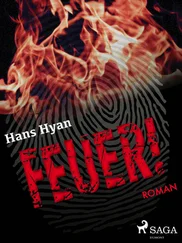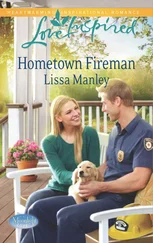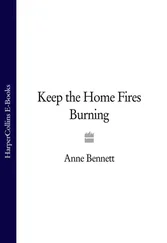Grief manifested itself in ways that felt like anything but grief; grief obliterated all feelings but grief; grief made a twin wear the same shirt for days on end to preserve the morning on which the dead were still living; grief made a twin peel stars off the ceiling and lie in bed with glowing points adhered to fingertips; grief was bad-tempered, grief was kind; grief saw nothing but itself, grief saw every speck of pain in the world; grief spread its wings large like an eagle, grief huddled small like a porcupine; grief needed company, grief craved solitude; grief wanted to remember, wanted to forget; grief raged, grief whimpered; grief made time compress and contract; grief tasted like hunger, felt like numbness, sounded like silence; grief tasted like bile, felt like blades, sounded like all the noise of the world. Grief was a shape-shifter, and invisible too; grief could be captured as reflection in a twin’s eye. Grief heard its death sentence the morning you both woke up and one was singing and the other caught the song.
When she received the words that made her singular for the first time in her life, she pushed them away. It was not true, they meant someone else, it wasn’t him. Where was the proof, bring him to me. No, they couldn’t do these things because it was not him. If it had been him it wouldn’t be this man sitting in Aunty Naseem’s living room bringing the news, a plastic comb sticking out of his breast pocket. He wasn’t one of yours, she told the man; we aren’t yours. Then she left him downstairs, went to her room to catch up on the reading for class she had neglected since her brother had called earlier that day. And now he was sulking because she hadn’t come to him though she promised she would. She locked her door against Aunty Naseem’s knocking and entreating. It wasn’t her fault, they hadn’t let her through. For your own protection, they’d said, taking her passport away, refusing to say when she could get it back. Or no, he wasn’t sulking, he was on his way to her, the texts he had sent stuck somewhere in a foreign network, this happened sometimes, a logjam of communication unable to cross borders for hours or days at a time and then the onslaught of pinging that was every message arriving in triplicate. It had happened with her aunt texting from Karachi six months ago: Where is he? When is he coming? He could at least call to explain, don’t they teach manners in England? He was on his way to her, flying home, watching the stars from his window seat — Castor and Pollux holding hands through the cold, dark night.
She fell asleep and at some point there were arms around her in that childhood familial way. It wasn’t a surprise, but that made it no less a pleasure to curl into the warmth of a twin and slip deeper into that level of sleep where nightmares can’t reach, held fast by love, a foretaste of heaven.
ii.
The sunlight across her eyes was late morning. She turned in bed, her body heavy with sleep and anticipation. No one there but an indentation on the pillow. Out of bed and down the stairs she went, to the voices of Aunty Naseem and her two daughters and sons-in-law, all of whom had skipped work to come over and welcome home the boy whose absence they’d carried as a secret these past six months when everyone else thought he was in Karachi. Kaleem Bhai — Aunty Naseem’s older son-in-law — had even given Aneeka the handset he used on trips to Pakistan so she could send occasional messages seemingly from Parvaiz to his friends missing home not missing the weather camels look so surly because they can never escape their own smell sorry trying to stay off the grid — exploring my inner ascetic. Someone will find out eventually, Kaleem Bhai had said, but she’d known from the start that her brother would never stay away very long.
But why was it Isma coming toward her — liar, betrayer, but now that Parvaiz was home she could be forgiven. But even so, why was it Isma catching her in a familiar familial embrace, and why the face she knew too well the one that had said Ama’s dead Dadi’s dead, why her voice heavy with tears saying, “I took the first flight when Aunty Naseem called,” and “We’ll always have each other,” when Isma had never been “always”; “always” stretched both forward and back, womb to tomb, “always” was only Parvaiz.
And why was he back, the man with the plastic comb in his pocket, the representative of the Pakistan High Commission, holding his hands up as she entered the room, apologizing for yesterday, which should have meant apologizing for bringing them someone else’s grief but instead meant apologizing that he’d failed to lift his cupped hands and recite Inna lillahi wa inna ilayhi raji’un — We surely belong to Allah and to him we return.
“No,” she said to the man. “You’re confusing him with someone else. He’s a British citizen; he has nothing to do with you.”
“I’m sorry,” the man said, miserably, looking at Isma, who had taken Aneeka’s hand as if one of them were a child in need of help crossing the road. “You’re obviously a good, pious family. You don’t deserve this treatment from your government. This home secretary has a point to prove about Muslims, no?”
She’d been so preoccupied with waiting to hear from Parvaiz she’d failed to notice Eamonn hadn’t called back.
iii.
[CLOSED CAPTIONING]
The Turkish government confirmed this morning that the man killed in a drive-by shooting outside the British consulate in Istanbul yesterday was Wembley-born Pervys Pasha, the latest name in the string of Muslims from Britain who have joined ISIS. Intelligence officials were aware that Pasha crossed into Syria last December, but as yet have no information about why he was approaching the British consulate. A terror attack has not been ruled out. The man in the white SUV who shot Pasha has not been identified, but security analysts suggest he could have belonged to a rival jihadi group.
The home secretary spoke just minutes ago to our political correspondent, Nick Rippons, about Pervys Pasha:
— So we have yet another case of a British citizen who
— I’m going to cut you off there, Nick. As you know, the day I assumed office I revoked the citizenship of all dual nationals who have left Britain to join our enemies. My predecessor only used these powers selectively, which, as I have said repeatedly, was a mistake.
— And Pervys Pasha was a dual national?
— That’s correct. Of Britain and Pakistan.
— Practically speaking, does this have any consequences now that he’s dead?
— His body will be repatriated to his home nation, Pakistan.
— He won’t be buried here?
— No. We will not let those who turn against the soil of Britain in their lifetime sully that very soil in death.
— Has his family in London been informed?
— That’s a matter for the Pakistan High Commission. Excuse me, Nick, that’s all I have time for.
iv.
#WOLFPACK
Just started trending
#PERVYPASHA
Just started trending
#DONTSULLYOURSOIL
Just started trending
#GOBACKWHEREYOUCAMEFROM
Just started trending
v.
The kitchen filled with food for mourners who didn’t come.
Only Gladys phoned. Her daughter had arrived in the afternoon to bundle her in the car and take her to Hastings, where she wasn’t supposed to leave the house until the news cycle stopped replaying the woman with mascara-stained cheeks telling news cameras: “He was a beautiful, gentle boy. Don’t you try to tell me who he was. I knew him from the day he was born. Shame on you, Mr. Home Secretary. Shame on you! Give us our boy to bury, give his mother the company of her son in the grave.”
Читать дальше












